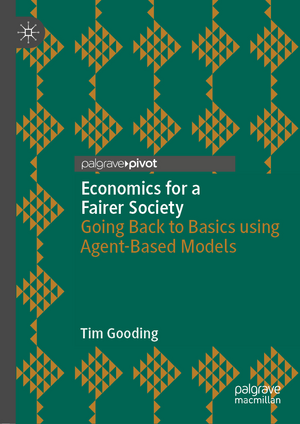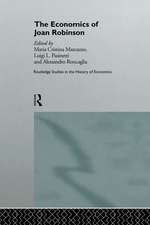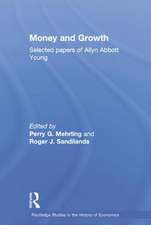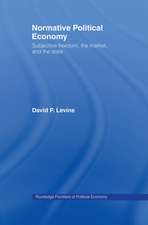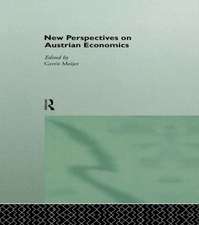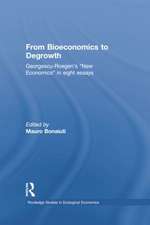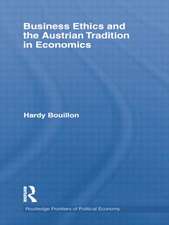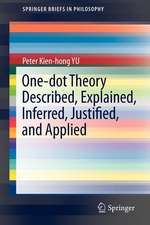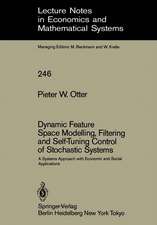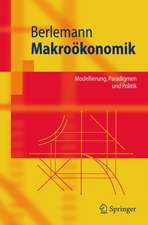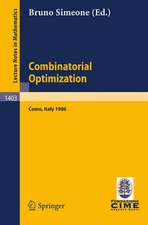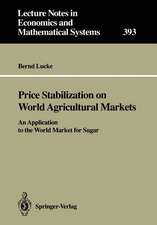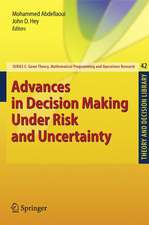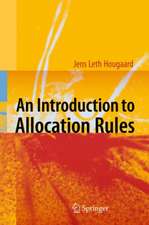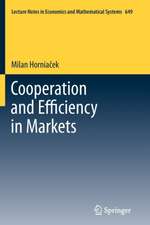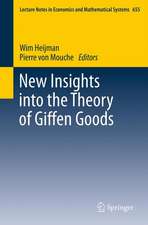Economics for a Fairer Society: Going Back to Basics using Agent-Based Models
Autor Tim Goodingen Limba Engleză Hardback – 6 mai 2019
Isolating the core dynamics of trade results in very simple agent-based models. However, decades of complexity research demonstrate that even the simplest systems result in emergent behaviour that is extremely difficult to anticipate. Readers who are only familiar with the linear-system theories and models used to train almost all undergraduate economics students might be surprised to witness price detaching from supply and demand, and extreme poverty and wealth arising in trade systems populated by agents with equal ability and opportunity. Watch as empirical evolutionary prerequisites are introduced and price patterns characterising two different markets – asset markets and speculative markets – emerge irrespective of supply and demand.
In addition to laying the groundwork of monetary trade in a complex system, more complicated models feature mortal reproductive agents. Including ‘living’ populations in economic models reveal how the complexity characteristics of our market economy are impacting impoverishment and starvation.
This book invites anyone interested in economics to join the growing ranks of people who are fascinated by the insights offered by complexity research.
Preț: 423.84 lei
Nou
Puncte Express: 636
Preț estimativ în valută:
81.11€ • 88.08$ • 68.13£
81.11€ • 88.08$ • 68.13£
Carte tipărită la comandă
Livrare economică 23 aprilie-07 mai
Preluare comenzi: 021 569.72.76
Specificații
ISBN-13: 9783030170196
ISBN-10: 3030170195
Pagini: 183
Ilustrații: XIII, 184 p. 70 illus., 69 illus. in color.
Dimensiuni: 148 x 210 mm
Greutate: 0.48 kg
Ediția:1st ed. 2019
Editura: Springer International Publishing
Colecția Palgrave Pivot
Locul publicării:Cham, Switzerland
ISBN-10: 3030170195
Pagini: 183
Ilustrații: XIII, 184 p. 70 illus., 69 illus. in color.
Dimensiuni: 148 x 210 mm
Greutate: 0.48 kg
Ediția:1st ed. 2019
Editura: Springer International Publishing
Colecția Palgrave Pivot
Locul publicării:Cham, Switzerland
Cuprins
Chapter 1: Introduction.- Chapter 2: First Nation Transition.- Chapter 3: Complexity, Emergence, and Evolution.- Chapter 4: Agent-Based Model History and Development.- Chapter 5: Netlogo.- Chapter 6: Evolution in Netlogo.- Chapter 7: Verifying Model Results.- Chapter 8: Money Distribution.- Chapter 9: System Efficiency.- Chapter 10: Price Basics.- Chapter 11: Evolutionary Price Robustness.-Chapter 12: Inequality: Money Distributions.- Chapter 13: Introducing Life.- Chapter 14: Long-Term Economic Outcome. Chapter 15: Summary and Final Comments.
Notă biografică
Tim Gooding is a multi-discipline complexity researcher affiliated with Kingston University, London, UK. His preferred research tool is agent-based models. He is particularly fascinated by how empirical evolutionary prerequisites from markets and market-societies create predictable and repeatable shapes in which some of society’s most persistent ‘modern problems’ reside.
Textul de pe ultima copertă
This Palgrave Pivot presents experiments that reveal core dynamics of trade in a complex system. Monetary trade is stripped of all its complications and placed in agent-based models, a complexity research tool capable of reproducing emergent behaviour and evolution. Included are ground-breaking repeatable experiments exploring the impact of evolutionary prerequisites empirically present in markets.
Isolating the core dynamics of trade results in very simple agent-based models. However, decades of complexity research demonstrate that even the simplest systems result in emergent behaviour that is extremely difficult to anticipate. Readers who are only familiar with the linear-system theories and models used to train almost all undergraduate economics students might be surprised to witness price detaching from supply and demand, and extreme poverty and wealth arising in trade systems populated by agents with equal ability and opportunity. Watch as empirical evolutionaryprerequisites are introduced and price patterns characterising two different markets – asset markets and speculative markets – emerge irrespective of supply and demand.
In addition to laying the groundwork of monetary trade in a complex system, more complicated models feature mortal reproductive agents. Including ‘living’ populations in economic models reveal how the complexity characteristics of our market economy are impacting impoverishment and starvation.
This book invites anyone interested in economics to join the growing ranks of people who are fascinated by the insights offered by complexity research.
Isolating the core dynamics of trade results in very simple agent-based models. However, decades of complexity research demonstrate that even the simplest systems result in emergent behaviour that is extremely difficult to anticipate. Readers who are only familiar with the linear-system theories and models used to train almost all undergraduate economics students might be surprised to witness price detaching from supply and demand, and extreme poverty and wealth arising in trade systems populated by agents with equal ability and opportunity. Watch as empirical evolutionaryprerequisites are introduced and price patterns characterising two different markets – asset markets and speculative markets – emerge irrespective of supply and demand.
In addition to laying the groundwork of monetary trade in a complex system, more complicated models feature mortal reproductive agents. Including ‘living’ populations in economic models reveal how the complexity characteristics of our market economy are impacting impoverishment and starvation.
This book invites anyone interested in economics to join the growing ranks of people who are fascinated by the insights offered by complexity research.
Caracteristici
Examines what it would mean to economic theory if, in the long-run, supply and demand did not determine price Provides an overview of agent-based models in economic theory Argues the free market is a complex system
